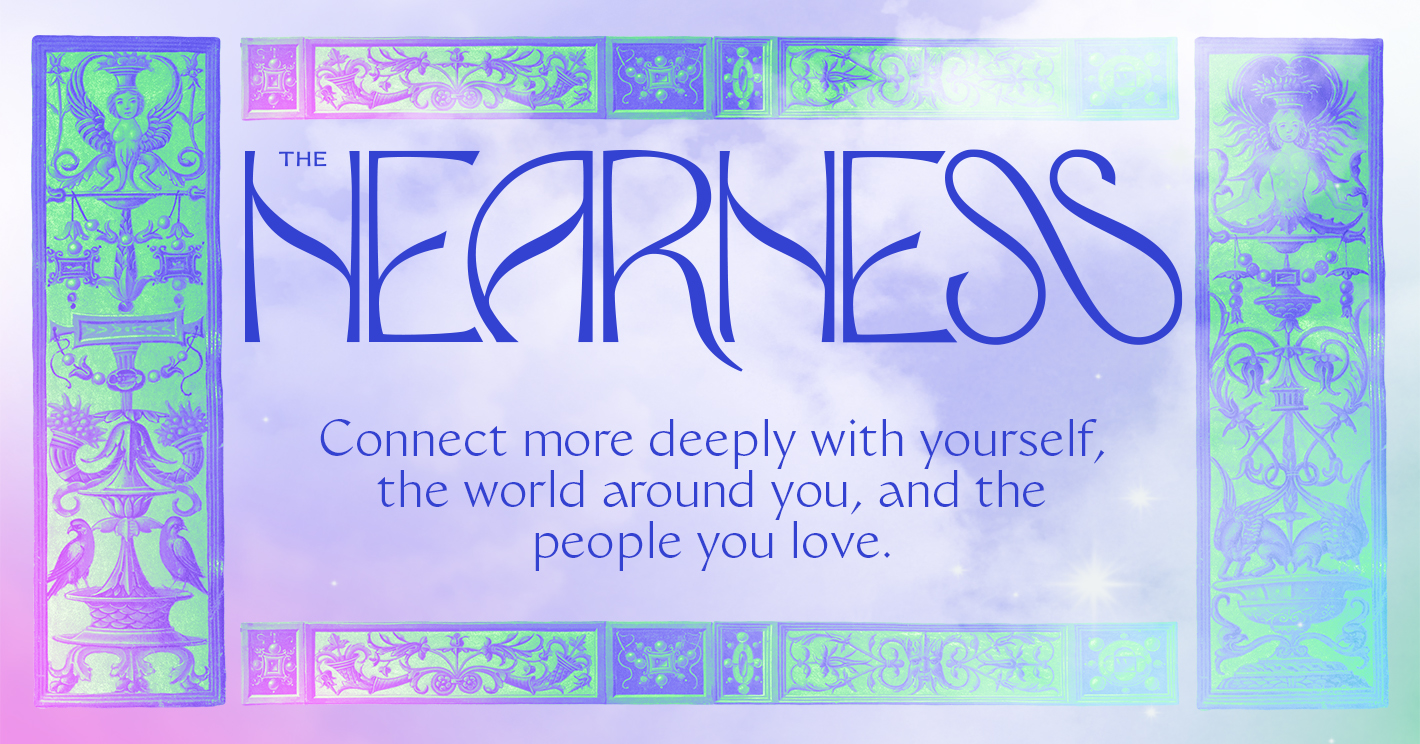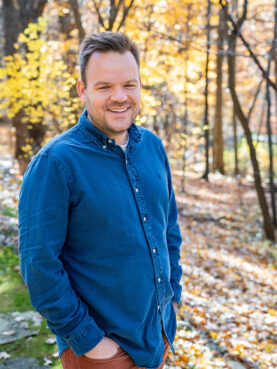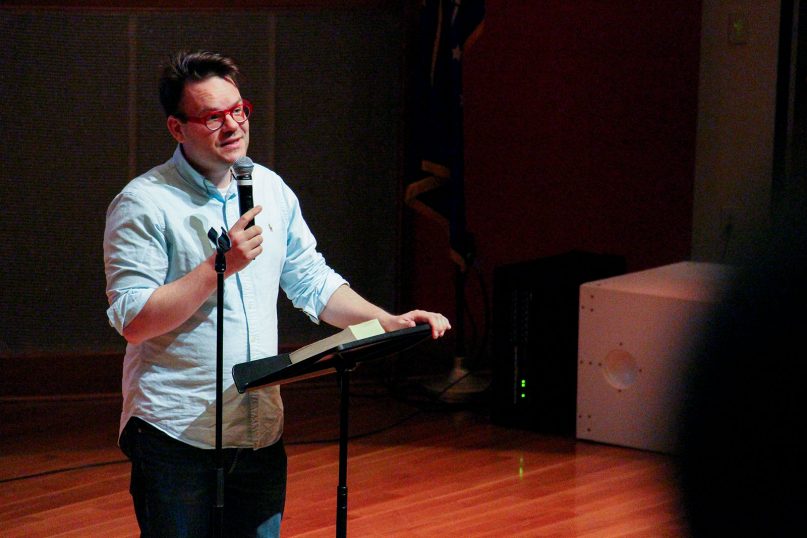(RNS) — Where many observers look at American religion and spirituality and see decline, Casper ter Kuile sees the changing faith landscape as an opportunity.
“We are in crisis today. Too many of us feel isolated and bereft of purpose. What worked for prior generations is failing,” said ter Kuile, the founder, most recently, of The Nearness, in a recent interview. “But I think we’re both reclaiming and re-creating what we need most: a feeling of belonging and purpose.”
Even as religious affiliation plummets in America, those who are “spiritual but not religious” form one of the fastest growing groups in the country. For ter Kuile, this signals the yearning for belonging, community and purpose that he has turned into a career in spiritual entrepreneurship.
Ter Kuile’s latest venture, The Nearness, arose from twin crises of the COVID-19 pandemic: the trend of 10,000 churches and houses of worship closing every year, depriving many of their communities, even as mental health experts have identified an epidemic of loneliness.
The Nearness, founded with Alec Gewirtz, brings together a half-dozen people into small groups to meet online each week for eight weeks. These 90-minute conversations center on meaningful questions explored through embodied ritual, poetry and the study of writings as widely ranging as Rabbi Abraham Heschel, bell hooks and the Celtic Catholic scholar John O’Donohue.
“What has been so powerful about The Nearness is that it provides a structure reliant on everyone’s contribution,” said ter Kuile.”Many people feel a kind of co-created ownership as they help shape their own gatherings.We give them the tools — the guide sheets, the questions, the topics — but they make the community.”

The Nearness is an online community where people of all religious and nonreligious backgrounds can nurture and define what spirituality looks like for them outside of traditional religious institutions. Image courtesy of The Nearness
The groups agree on a covenant to help shape expectations and mutual commitments, but more importantly that gives them a connection to each other. The project is structured as a cooperative, in which payments from members go partly to support member-led service projects and partly into the company, including to pay employees.
The Nearness combines many of the questions that have fueled ter Kuile’s groundbreaking work — how texts mesh with spirituality, for instance, or how ritual operates outside traditional worship spaces. He’s perhaps best known for co-founding Sacred Design Lab, a “soul-centered research and development” facility that consults with companies and foundations on using ancient spiritual wisdom to inform their product development, branding and organizational needs.
Common to these quests has been a curiosity about how Americans’ migration away from traditional religion is not necessarily a loss, but a chance to break new spiritual ground.
“I always think of Thomas Merton’s distinction between tradition and convention. Often times in religious life we become fixated on convention, forgetting the tradition that inspired it.Tradition is lived, fiery thing that has to sparkle and resonate and change.”
Born and raised in England, Casper ter Kuile’s parents and his upbringing were distinctly Dutch, in language, ritual and family traditions. His mother ran a bed-and-breakfast out of their home, and as a teenager, ter Kuile recalls meeting a diverse array of people, each with their own understanding of identity and community.
The experience, he said, inspired a lifelong sensitivity in noticing others’ searches for belonging. “Now I realize what a gift that was, and the feeling of gathering and belonging that my mother helped create is an inspiration for the work I do now.”
As a young adult, ter Kuile was drawn into climate change activism. He co-founded Campaign Bootcamp and the U.K. Youth Climate Coalition, recruiting and training other young activists. But he soon came to the painful and familiar realization that “as an individual, perhaps I’m not going to save the world. So I followed what many stumble into when you don’t know what to do with your life: I went to graduate school.”

Casper ter Kuile. Courtesy photo
Studying public policy at Harvard University, ter Kuile noticed that his most interesting conversations were with students at the divinity school. “Growing up really without any religion, I assumed divinity school was just for Catholic priests,” he said. I fell in love with it when I realized it was actually a training ground for all the things that emerged from my life and skills — how to bring people together, how to make meaning, how to build deep relationship, how to sing together.”
He enrolled at Harvard Divinity School in 2013 and was introduced to the different ways many faith traditions asked the same universal questions: How do we live together? What does it mean to do right by each other? What does it mean to be alive?
At the heart of these questions, he found, was the search for belonging. Ter Kuile joined with a fellow divinity student and kindred mind, Angie Thurston, and started exploring how friends, colleagues and classmates defined and created belonging for themselves. They were startled to find that community could be found everywhere: at the gym, in a cancer support group, volunteering in a political campaign.
Notably, belonging seemed to arise less frequently among religious groups, the very locations that were once the hub of community creation in America.
Their observations mirror larger trends of the 21st century in the United States.In the mid-20th century, half of American adults said they attended religious services in the past week. Today, only 22% report attending in the past week. Some 57% of Americans say they seldom or never turn to a religious institution.
Ter Kuile and Thurston turned their research into a groundbreaking paper, “How We Gather,” examining the new ways modern Americans, but particularly unaffiliated millennials, fulfill their spiritual and emotional needs. They turned to organizations specifically designed to build human connections, often using the ideas but none of the trappings of traditional religion, such as The Dinner Party and Juniper Path. They became customers of companies, such as SoulCycle and CrossFit, that openly sought to create community around nonreligious goals.
In 2019, ter Kuile and Thurston worked with a Harvard Divinity School teacher and Unitarian Universalist minister named Sue Phillips to co-found Sacred Design Lab.
At the same time, ter Kuile and another classmate, Vanessa Zoltan, began to explore how ancient ways of reading sacred texts could be applied to modern literature. “We wondered, could we do this with Harry Potter? Could we engage with text in a way that is a tool for making community?”
What started as a weekly discussion group turned into podcast, “Harry Potter and the Sacred Text,” and now inspires hundreds of gatherings and conversations around the world.
With The Nearness, ter Kuile is turning his attention to building a financially viable structure of belonging that avoids either the financial or dogmatic inflexibility of traditional religious institutions.
“Religion wasn’t my way into spirituality,” he said. “But I’ve come to be the beneficiary of the traditions of religion. Even though I don’t fit into any particular box, I think it can help us find the meaning without the dogma.”
This story has been corrected. An earlier version misspelled Alec Gewirtz’s name.





